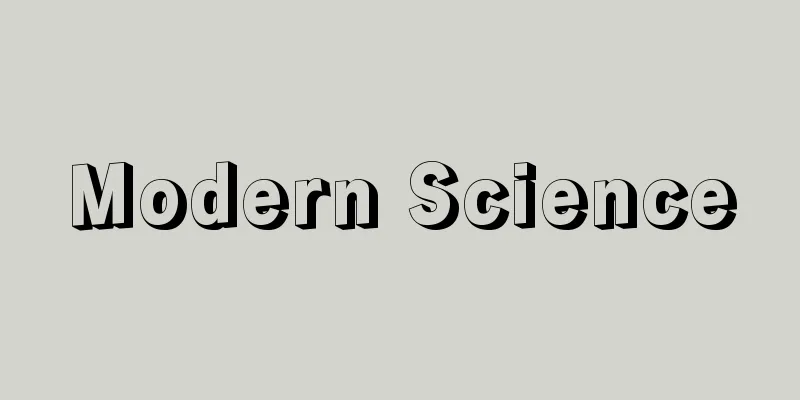Modern Science

|
A general term for the various systems of modern European natural science that began in the mid-16th century. In ancient Greece, empirical science was fused with philosophy, and in medieval Europe it was subordinate to theology, but in modern Europe it overcame these and became characterized by the exploration of the empirical world through mathematics and experimentation. Source: About Shogakukan Digital Daijisen Information | Legend |
|
16世紀半ばに始まった、ヨーロッパ近代の自然科学の諸体系の総称。経験科学は、古代ギリシャでは哲学と融合し、中世ヨーロッパでは神学に従属していたが、近代ヨーロッパではそれらを克服し、数学と実験による経験界の探求を特徴とするようになった。
出典 小学館デジタル大辞泉について 情報 | 凡例 |
<<: 《The Origin of Modern Science》 - Kindai Kagaku no Kigen
Recommend
Symptomatic epilepsy
...Hippocrates emphasized that although this was ...
《Familles naturelles des plantes》 (English notation) Familles naturelles des plantes
…Born in Aix-en-Provence, he grew up in Paris and...
Han Hee Jae - Environmental
…This work is based on the theme of an evening ba...
"Wang Gui and Li Xiangxiang"
…After that, he served as a political instructor ...
Darwin's tuberculum
The front, upper and rear edges of the pinna are m...
calix ministerialis (English spelling) calixministerialis
In ancient times, a large chalice was used to col...
Nukus - Nukus (English spelling) Нукус/Nukus
It is the capital of the Karakalpakstan Autonomou...
Wehner, H.
...After Orenhauer's death in 1963, West Berl...
Tamagaki
〘Noun〙 ("Tama" is a complimentary term. ...
Pecunia
…The shape is not an irregular metal lump, but is...
Deep-fried tofu - Ageda Shidofu
Tofu is coated with potato starch, lightly fried, ...
Development Benefits
…Because the benefits of these public investments...
Gutierrez, AG (English spelling)
… [19th century] The reaction against the formali...
Charmont, J.
…But his neo-Kantian formalism ultimately resulte...
Establishment movement - Kakuritsuundo
...The fundamental difference between this moveme...









